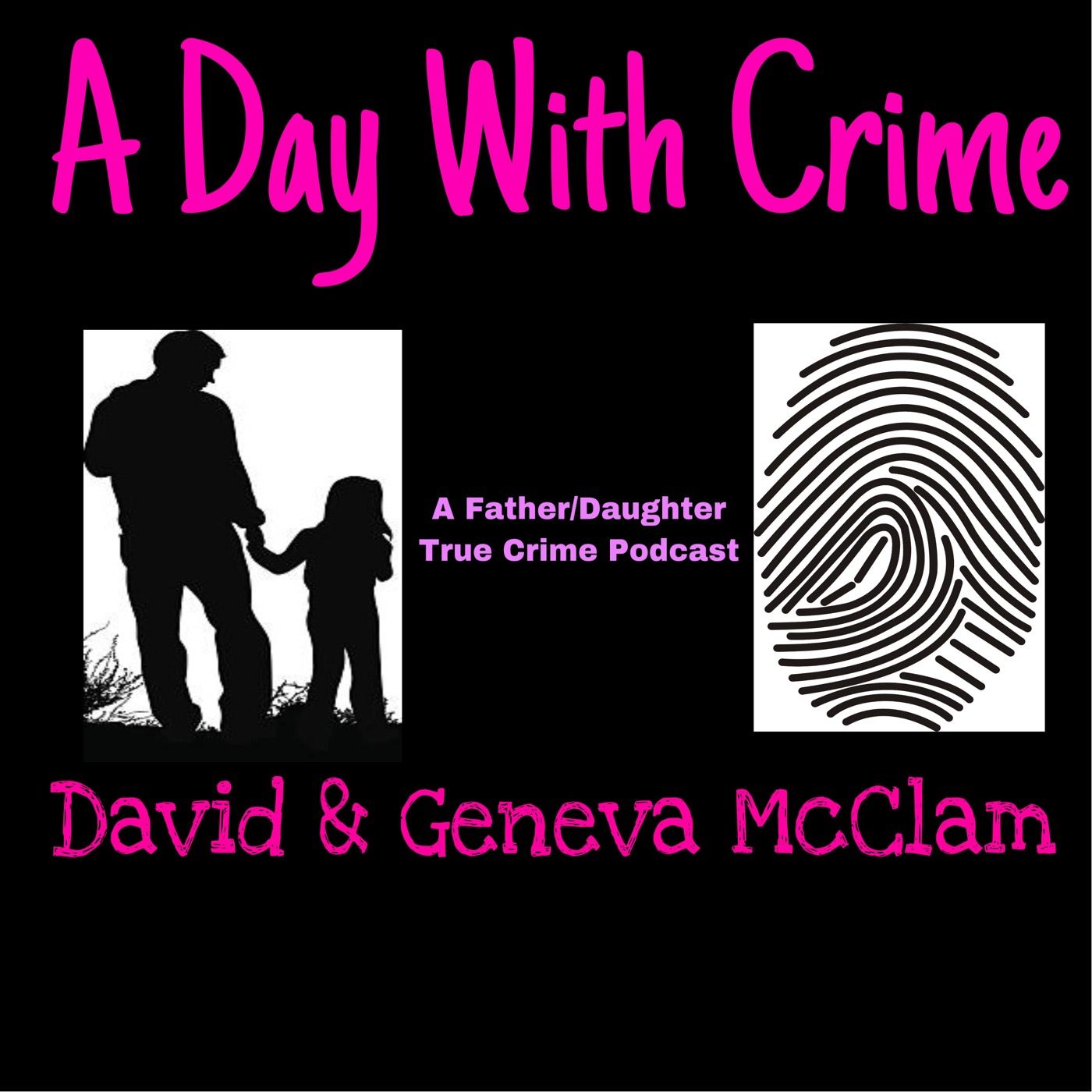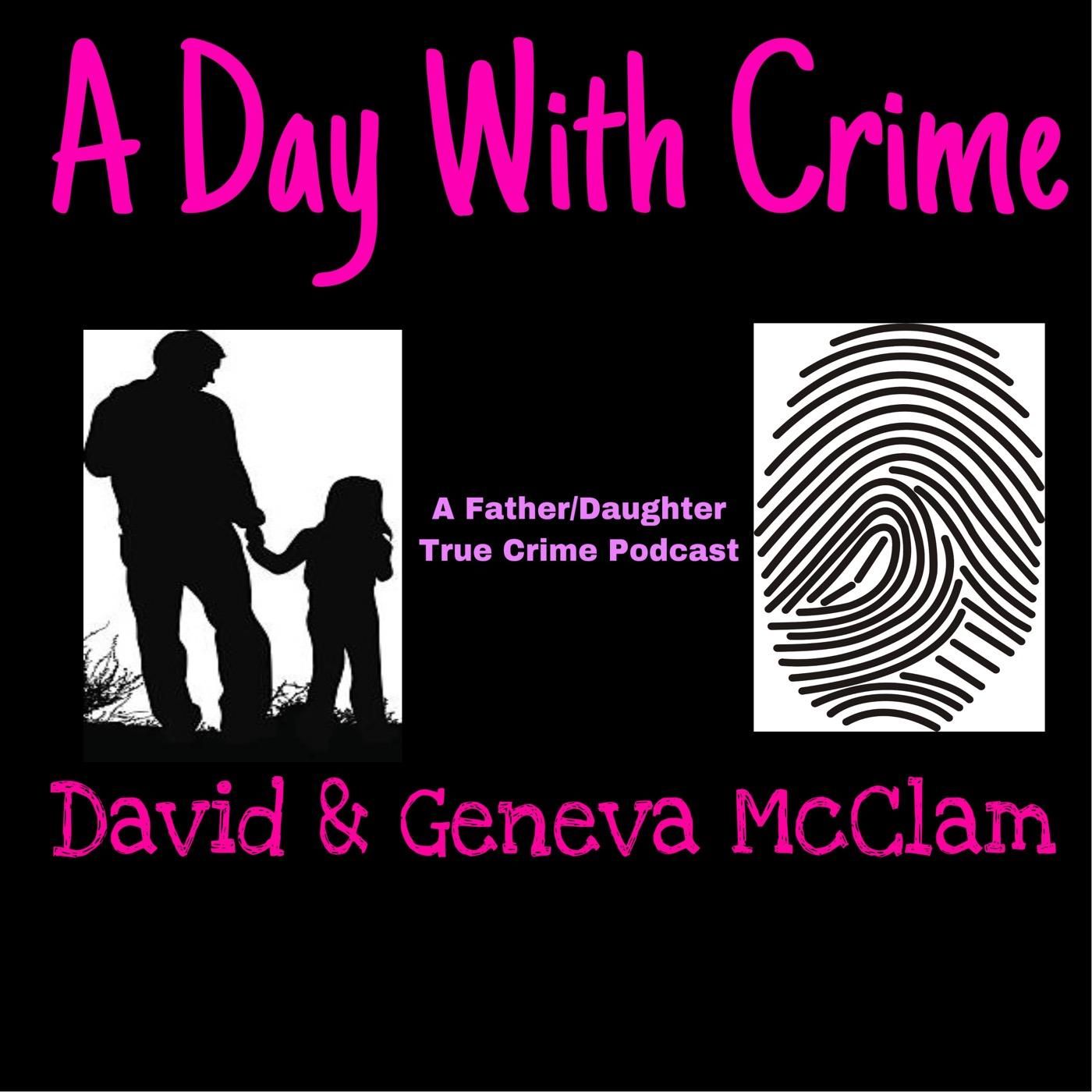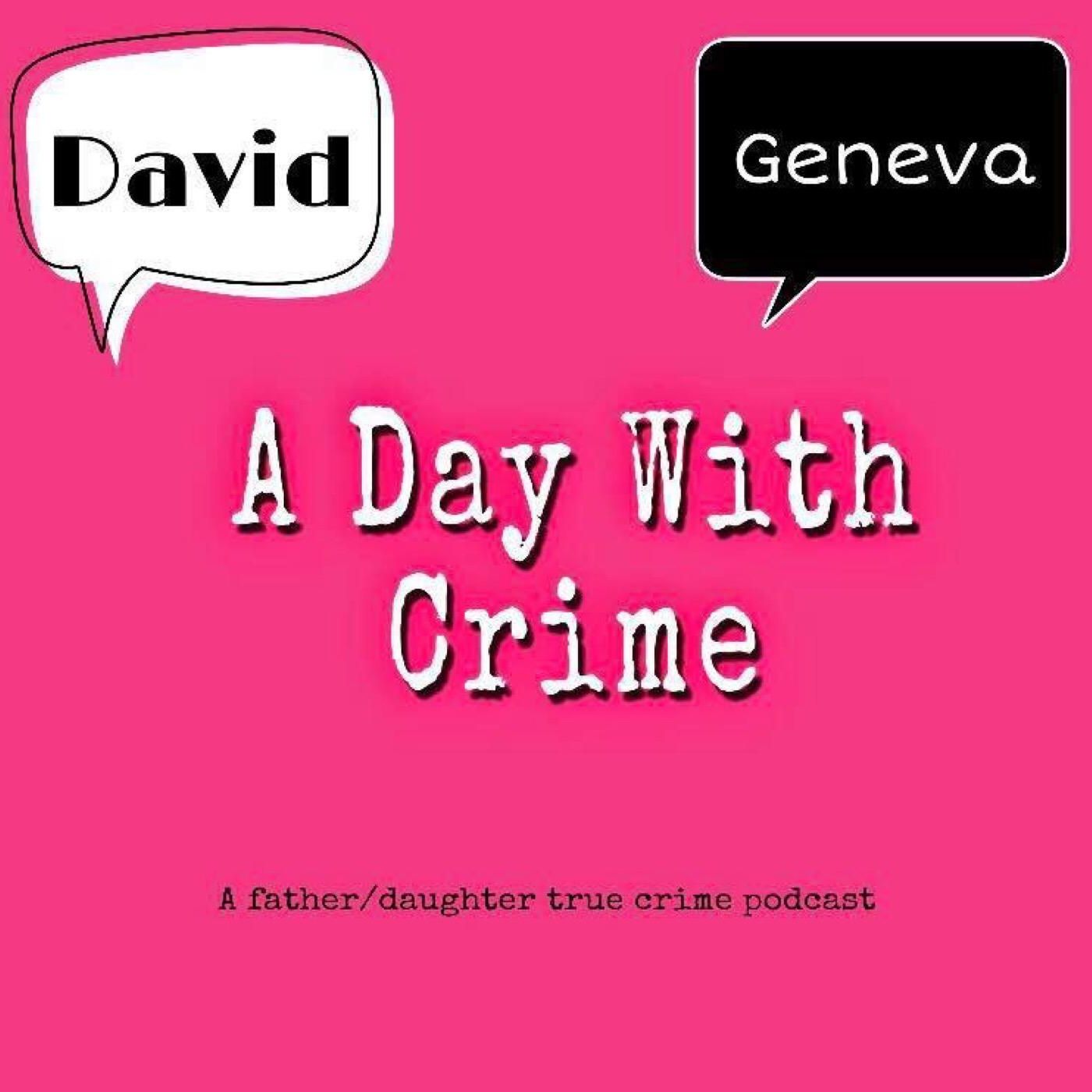Black History fact #9: I have a dream speech

The I have a dream speech is one of the most iconic speeches ever made. But do you know everything about that speech and how it came about that day in 1963?
https://www.history.com/news/i-have-a-dream-speech-mlk-facts
DON'T FORGET TO RATE,...
The I have a dream speech is one of the most iconic speeches ever made. But do you know everything about that speech and how it came about that day in 1963?
https://www.history.com/news/i-have-a-dream-speech-mlk-facts
DON'T FORGET TO RATE, COMMENT AND SUBSCRIBE
Join us on social media
Visit our website www.adaywithcrime.com
adaywithcrime@gmail.com
Cover Art created by Geneva McClam
Sound Mixing and editing by David McClam
Intro and outro jingle by David McClam
Don’t commit any crimes our there…So you DON’T end up on our podcast!
What's going on everybody. And welcome to another a day with crime black history fact edition. Of course I am your man, David. Let's jump in.
We have always talked about the man. A very prominent figure, in the fights for civil rights. That is Martin Luther king Jr. But today. We're going to talk a little bit about one of his most famous speeches. And I'll tell you some things you may not have known about that. And it is the, I have a dream [00:01:00] speech of 1963.
On August 28th, 1963. Some 250,000 people, both black and white. Participated in the March on Washington for jobs and freedom. The largest demonstration in the history of the nation's capital and the most significant display of the civil rights movements, growing strength.
After marching from the Washington monument, the demonstrators gathered near the Lincoln Memorial, where a number of civil rights leaders addressed a crowd. Calling for voting rights. Equal employment opportunities for black Americans and an end to racial segregation.
The last leader to appear was the Baptist preacher Martin Luther king, Jr. Of the Southern Christian leadership conference, or known as the SCLC. Who spoke eloquently. Of the struggle facing black Americans in the need for continued action. And nonviolent [00:02:00] resistance. I have a dream king in toned expressing his faith, that one day white and black people will stand together as equals,
and there will be harmony between the races.
I have a dream that my four little children will one day live in a nation where they will not be judged by the color of their skin, but by the content of their character. Kings improvise sermon continued for nine minutes. After the end of his prepared remarks in his stirring words would be remembered as undoubtedly one of the greatest speeches,
in American history.
At it's conclusion. King quoted and old Negro spiritual free at last, free at last, thank God almighty, we are free at last. King speech served as a defining moment for the civil rights movement. And he soon emerged, as his most prominent figure.
Now, some of that, we all knew. Let's talk about seven [00:03:00] things. That we probably may not have ever known really. About. The I have a dream speech.
For this, I'm sure we all know that his, I have a dream speech now stands out as one of the 20th century's most unforgettable moments. But here's a few facts about it that you still may be surprised about. It's a fact. Number one, there were initially no women included in the event. So despite the central role that women like Rosa parks, Ella baker,
Daisy Bates and others played in the civil rights movement, all the speakers at the March on Washington were men.
But at the urging of Anna Hedgemon the only woman on the planning committee, the organizers added a tribute, to Negro women fighters for freedom, to the program.
Bates spoke briefly in the place of Murli Evers, widow of the murder, civil rights leader, Medgar Evers. And parks and several others were recognized and asked to take a bow. [00:04:00] We will sit in and we will kneel in and we will lie in if necessary, until every Negro in America can vote, bait said. This we pledge to the women of America.
Number two. A white labor leader, and rabbi were among the 10 speakers on stage that day. King was proceeded by nine other speakers, notably, including civil rights leaders, like A Phillip Randolph and a young John Lewis, the future Congressman from Georgia.
The most prominent white speaker was Walter Reuther head of the United automobile workers, a powerful labor union. The UAW helped fund the March on Washington. And Reuther would later March alongside king from Selma to Montgomery. To protest for black voting rights. Joachim Prinz the president of the American Jewish Congress,
spoke directly before king. A great people who had created a great civilization had become a nation of silent onlooker. Prinz said. Of his experience [00:05:00] as a rabbi in Berlin, during the horrors perpetrated by Adolf Hitler's Nazi regime. America must not become a nation of onlookers. America must not remain silent.
Number three king almost didn't deliver what is now the most famous part, of the speech. King had debuted the phrase I have a dream in his speeches at least nine months before the March on Washington, and used it several times since then. His advisors discouraged him from using the same theme again, and he had apparently, do you have the diversion of the speech that didn't include it.
But as he spoke that day, the gospel singer Mahalia Jackson prompted him to tell them about the dream Martin. Abandoning his prepared text, king improvise the rest of his speech, with the electrifying results.
Number four, the speech makes allusions to the Gettysburg address, The emancipation proclamation, The declaration of [00:06:00] independence, The us constitution, Shakespeare and the Bible.
Five score years ago, king began referencing the opening of Abraham Lincoln's Gettysburg address. As well as the emancipation proclamation, which had gone into effect in 1863. After 100 years, king noted. The Negro is still not free. And the rights promised in the declaration of independence and the constitution were still denied to black Americans.
The image of this sweltering summer of the Negro's legitimate discontent. Echoes the opening soliloquy and William Shakespeare's Richard, the third. Now is the winter of our discontent. While the soaring end of the speech. With it's repeated refrains of let freedom ring. Calls on the 19th century patriotic song, My country tis of thee written by Samuel Francis Smith.
Finally king speech repeatedly [00:07:00] draws on the Bible, including an allusion to the book of Psalms. Weeping may linger for the night, but joy comes with the morning. And a quote from the book of Isaiah, every valley shall be exalted and every mountain and hill shall be made low. To name just two references.
Number five. The speech impressed the Kennedy administration and helped advance civil rights legislation in Congress. All three major TV networks at the time. Which is ABC, CBS and NBC aired king speech. And though he was already a national figure by the time. It marked the first time many Americans reportedly, including president John F. Kennedy had heard him deliver an entire speech.
Kennedy was assassinated less than three months later, but his successor Lyndon Johnson would sign the civil rights act of 1964. And the voting rights act of 1965 into law. [00:08:00] Marking the most significant advances in civil rights legislation. Since reconstruction.
Number six at the same time, the success of the speech attracted the attention and suspicion of the FBI. Federal authorities monitored the March on Washington, closely fairing, sedation, and violence. Policing of, the March turned into a military operation. Code name, operation steep hill. With 19,000 troops put on standby in the DC suburbs to quail possible rioting, which didn't happen.
After the event, FBI official William Sullivan wrote that King's powerful, demagoguing speech meant that we must mark him now as the most dangerous Negro of the future in this nation. At the FBI's urging attorney general, Robert Kennedy authorized the installation of wiretaps on King's phone and those at the offices of his organization, the Southern Christian leadership conference.
[00:09:00] Ostensibly to look into potential communist ties, the FBI later stepped up his surveillance of king, which lasted until his assassination in 1968. And the last and seventh. Fact the king family still owns the I have a dream speech. Though it is one of the most famous and widely celebrated speeches in US history.
The I have a dream speech is not in the public domain. But it's protected by copyright. Which is owned and enforced by Kings heirs. As reported in the Washington post. King himself obtained the rights a month after he gave the speech, when he sued two companies, selling an authorized copies. Those some parts of this speech may be used lawfully without approval, for example, individual teachers have been able to use the speech.
in their classrooms. The king estate requires anyone who wants to air the speech to pay for that [00:10:00] right. All right so let's talk a little bit about a few of these one. I did know, that Mahalia Jackson. urged him on to give the, I have a dream part at the end. It is one of the things that when I did a study on Martin Luther king Jr. Way back when I was in junior high school.
That that had came up. It wasn't until I was a little bit older. That I actually found out that to be true. It is are many documentaries. That is done on Martin Luther King Jr. and about that speech. So if it wasn't for Mahalia Jackson, we would've never gotten the I have a dream part. And all of that was improvised at the end, but I guarantee you.
Martin felt every word of that. As you already heard because of that speech. It did catch the ear of the then president John F. Kennedy. It did open up a whole bunch of doors for African Americans. With the right to vote [00:11:00] act, being signed into law, as well as the civil rights act of 1964. But it also, as you heard drew the ire of the FBI,
Now let's be honest. The FBI did not like Martin Luther king Jr. From the beginning. J Edgar Hoover. Could not stand the grounds that Martin Luther King Jr. Walked on in a lot of that was because of the fact that he actually believed whether anybody wants to admit this or not. That Martin Luther king Jr. Could have been the one.
To unify, African americans and white people, at least to a significant point. This is why it was very important, for The FBI and anyone else who was white, that was against Martin to get rid of him. Kennedy also fell into that [00:12:00] whole entire ire with that because he agreed with Martin.
And he always was, seemed to back Martin up about there should be equal justice. That's why now if you do pull certain documentaries, It does kind of put Martin Luther King's assassination. And John F Kennedy's assassination kinda together. Because we do feel they kind of go. Hand in hand. So yes, he was bugged they found out a lot of things.
About Martin, some of them not so flattering. But because they wanted to take Martin down. And after that speech. That is exactly what the FBI said and thought. That he had just become the most dangerous Negro of the future. And I do believe that if Martin Luther King Jr. Would have still been alive to day.
Race relations would be in a whole different ballpark, than where it [00:13:00] is right now. And if you watch any doucmentary on Martin Luther King Jr.. If you watch tape of that speech. You would agree with me as well.
As we all know there is a Martin Luther king Jr. Monument. That is right down the way from the Lincoln monument. I don't want it to be mistaken, and everybody thinks that they just went and put that up.
About everything African Americans have. We've always had to fight for and Martin Luther King Jr's monument as well as Martin Luther King Jr. Day, is no exception. Coretta Scott King. Pressed for Martin Luther king to have his day for a long period of time before it became the national holiday now
that it is. Also, there was a lot of money that had to be raised for Martin Luther King Jr's monument. There was commercials, I donated to it myself back in the day. Where they were taking donations to build it because every time they went to build it,[00:14:00]
The state is tried to block it. There wasn't enough money, there was too much this too much of that. But now we finally have the monument for the man that deserves it. Sitting there is actually two monuments, for him. The other one I believe is in Georgia. And that one is equally as beautiful. There's like this.
Big long flowing pool. That flows down. And it has some of his speeches behind it. Like when justice runs down like water, very beautiful.
All right. Guys. So thank you for joining me for this one. I hope. That you have learned something about the, I have a dream speech. It is still one of the most iconic speeches
to show you that I'm also learning when I present some of these facts that you guys, I never even knew that his family owned the rights to that speech. I always wondered why it was never put into an African-American museum or made public domain. Well, now we know why they [00:15:00] actually own it. And if you want to use it, they're going to charge you for it.
So join me again tomorrow for yet another black history fact. And as always be good to yourself. And to each other. I'll catch you on the next one





